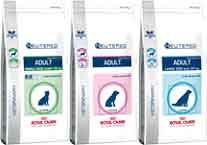The operation involves surgical removal of both testicles via an incision in front of your dog’s scrotum.
It is a straightforward operation performed under general anaesthesia. Your dog will be admitted as a ‘day patient’ and following a pre-operative check by your veterinary surgeon, he will be given a pre-medication and analgesic (pain killing) injection prior to his general anaesthetic. After surgery and following his recovery from the anaesthetic he will be ready to go home later the same day. You will be given full discharge instructions on how best to care for your dog after surgery and he will be checked by your veterinary nurse 3 days later to ensure the wound is healing. If there are any sutures present these will be removed 10 days later. Your dog will go home with some pain relief medication for a few days and a Buster collar if required to prevent any interfering with their wound.
What are the advantages of castration?
Medical – Male dogs are prone to several medical conditions. Enlargement of the prostate, testicular tumours and certain types of anal tumours are relatively common in older entire dogs. Removal of the testicles minimises the chances of there being problems in later life.
Retained testicles (cryptorchidism) – This is a condition where by one or both of the testicles have failed to move into the scrotum and are still in your dog’s groin or abdomen. If the testicles have not descended by the time your dog is 8 months old they are probably unlikely to move any further. When the testicles are retained they are at a higher temperature than in the scrotum. This leads to infertility and an increased likelihood of the testicle becoming cancerous. Removal of the testicle(s) is therefore still recommended but the operation may be a bit more complicated as the abdomen may need to be entered.
Unwanted puppies – Thousands of unwanted dogs are destroyed every year due to ‘accidental matings’. Being responsible for your dog’s actions will greatly reduce the stray dog problem in this country.
Behavioural problems – Once a dog has reached puberty at about six months they may start showing male characteristics such as mounting or aggression. This sort of behaviour is generally considered antisocial and unacceptable. Certain behavioural problems such as dominance, aggression, urine marking and roaming may be improved with castration. However castration should not be looked at as ‘the answer’ to all bad behaviour and will not stop a dog being ‘bouncy’ for example. Also while hormones are responsible for some behaviour initially, your dog may continue with these behavioural problems out of habit. If you are unsure of whether castration will help in your dog’s situation you should consult your veterinary surgeon to discuss the problem.
Are there any disadvantages?
The operation carries a small risk associated with general anaesthesia. Your dog will be assessed prior to surgery to ensure he is fit and well for the procedure, and full instructions will be given when he goes home to minimise the chances of a problem occurring with the wound.
It is a common fallacy that a neutered dog will become fat and lazy. They may have a decreased activity level following neutering, which in turn causes weight gain IF your dog continues to be fed the same amount of food as before they were neutered. Neutered pets can require up to a 30% reduction in their feeding requirements. This is due to no longer utilising energy in to reproduction. This extra energy may then be stored as excess body fat instead.
After your dog is neutered, we recommend moving him onto a neutered dog food. Royal Canin have developed a competitively priced, veterinary exclusive pet food, Royal Canin VetCare Nutrition range. This food is high in protein and low in fat to help combat against any weight gain. Your veterinary nurse will be able to advise you on the best feeding regime for your dog.
When to castrate?
The best time for castration is 6 – 12 months of age (depending on breed) at the onset of puberty although adult dogs can be castrated at any age.
Are there any alternatives?
There is non-surgical option which can be used for temporary effects:
This is an implant given by injection which blocks the production of hormones suspending the fertility of sexually mature male dogs for a minimum of 6 months. There can be side effects and your dog would need to have a health check so it is important that you discuss these options further with your veterinary surgeon if you require more information.
Useful links:
www.royalcanin.co.uk




